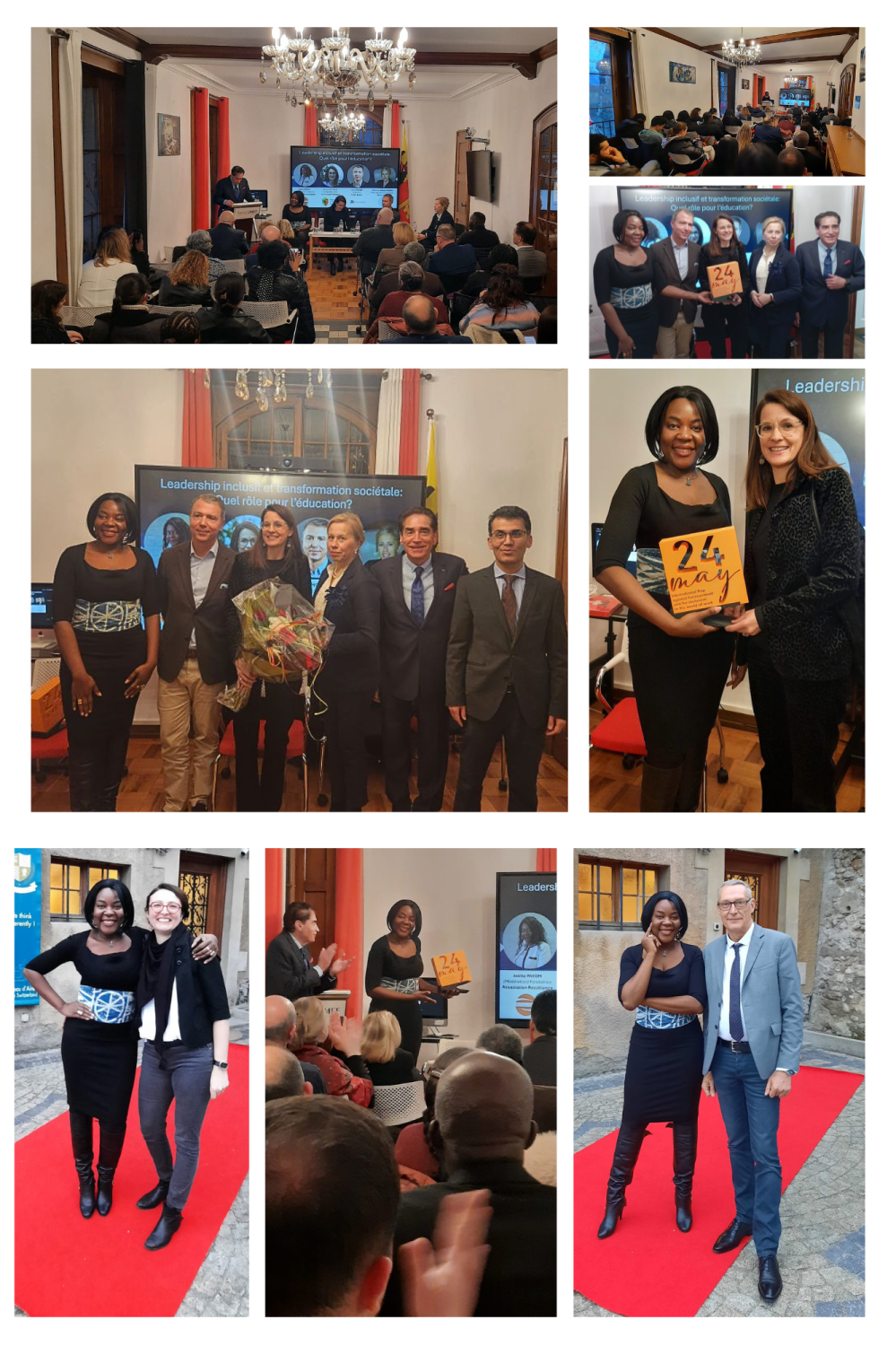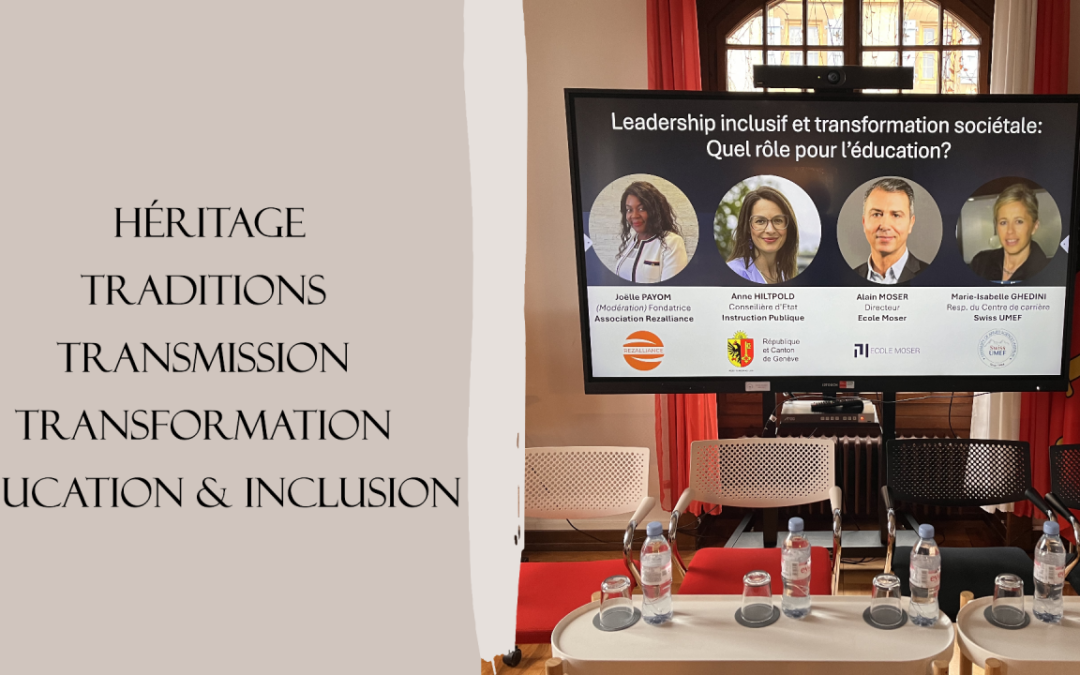Behind the Scenes at Rezalliance – A Glimpse into the March 4 2024 Roundtable
In this article, I’d like to take you behind the scenes of Rezalliance and share a moment that left a lasting impression: the roundtable held on March 4, in the majestic setting of the Castle of Aïre. More than just a castle steeped in history, this venue is a symbol of learning—it houses Swiss UMEF University of Applied Sciences, the first private institution in the canton of Geneva to be officially accredited at the federal level as a University of Applied Sciences (HES).
The event brought together curious and passionate minds on a Monday evening, once again demonstrating the strong interest in the theme of inclusion. Unless, of course, the nearly 70 people in attendance were drawn by another reason… such as the presence of the Minister of Education, Training and Youth of the State of Geneva.
Since the roundtable was not recorded, I wondered what would be the best way to share the key takeaways from that memorable evening. Then I remembered the opening remarks I had carefully prepared in advance, to lay the foundation for our discussions.
And so I thought—the simplest way is just to share the speech I delivered that evening:
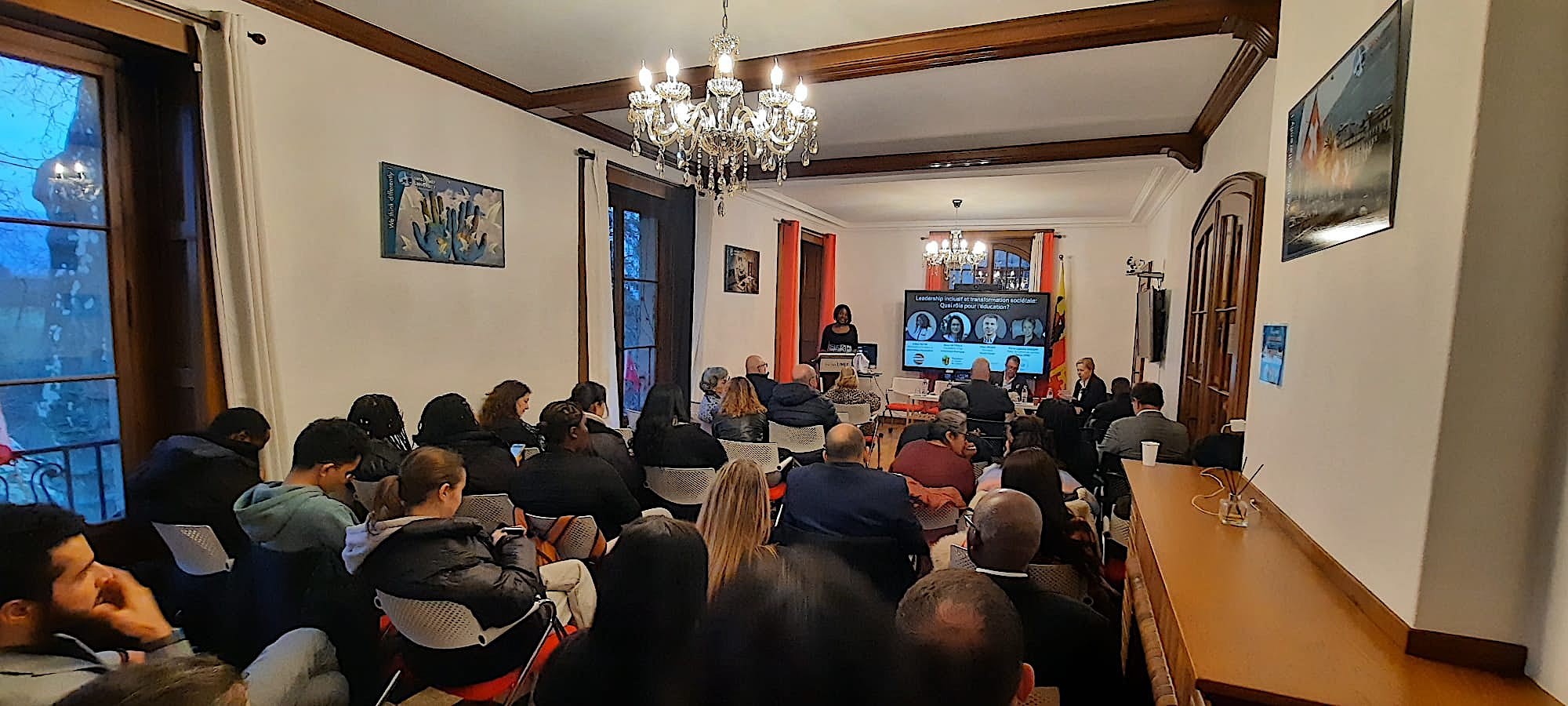
Opening Speech
Good evening, everyone,
Monday is probably the least appealing day of the week to organize an event, so let me start by warmly thanking you for being here and choosing to spend this moment with us.
This roundtable marks the launch of a series of conferences in Geneva, co-organized in partnership with Swiss UMEF, echoing the International Day Against Workplace Harassment and for Inclusion. Celebrated every May 24 since 2022, this awareness day is an initiative of the association Rezalliance, launched in collaboration with the association Strukturelle, whose President, Maya Dougoud, is also with us this evening.
As President of Rezalliance, I would like to sincerely thank the entire team at Swiss UMEF—and especially its President, Mr. Petro Roman, and its CEO, Mr. Djawed Sangdel—for welcoming us in such a magnificent setting.
The Château d’Aïre is a place filled with history—a symbol of culture, heritage, tradition, and transmission. Themes that will be subtly woven throughout our discussions this evening.
This castle, through its stature, reminds us of the importance of building together, on the foundation of education, to nurture critical thinking, resilience, and to shape enlightened, responsible citizens.
Tonight, we will explore the vital role education plays—from early schooling to university—in shaping a more inclusive, fair, and peaceful society.
To enrich our discussion, allow me to briefly introduce our panelists:
· Ms. Anne Hiltpold, State Councillor in charge of Public Education, Training and Youth in Geneva, and former Mayor of Carouge.
· Mr. Alain Moser, Director of École Moser, a private school based in Geneva, Nyon, and Berlin. His school, which welcomes 1,500 students, received the Equality Award in 2022 during the Grand Prix de l’Économie in Geneva.
· Ms. Marie-Isabelle Ghedini, Head of the Career Center at Swiss UMEF and professor of critical thinking.
Before diving into such complex and sensitive topics, I believe it’s essential that we align on some key concepts. I’d like to propose a few definitions that will guide our conversation:
- Diversity: All demographic and cognitive characteristics that make every human being unique. Which means—yes—men are also part of “diversity.”
- Equality vs Equity: Equality is a principle, a goal, an ideal. Equity is a means to that end. While equality offers the same to all, equity adjusts support to meet individual needs.
- Inclusion: A proactive process that translates the principle of equal rights into fair and adapted treatment. It involves rethinking and reshaping systems, environments, or cultures so that everyone—regardless of visible or invisible differences or needs—can participate fully, and feel valued and respected.
- Integration vs Inclusion: Integration asks the individual to adapt to an existing framework, without requiring any major changes to the system. Inclusion, on the other hand, transforms the system to accommodate and embrace everyone.
Are we all aligned?
Then let’s begin our conversation!
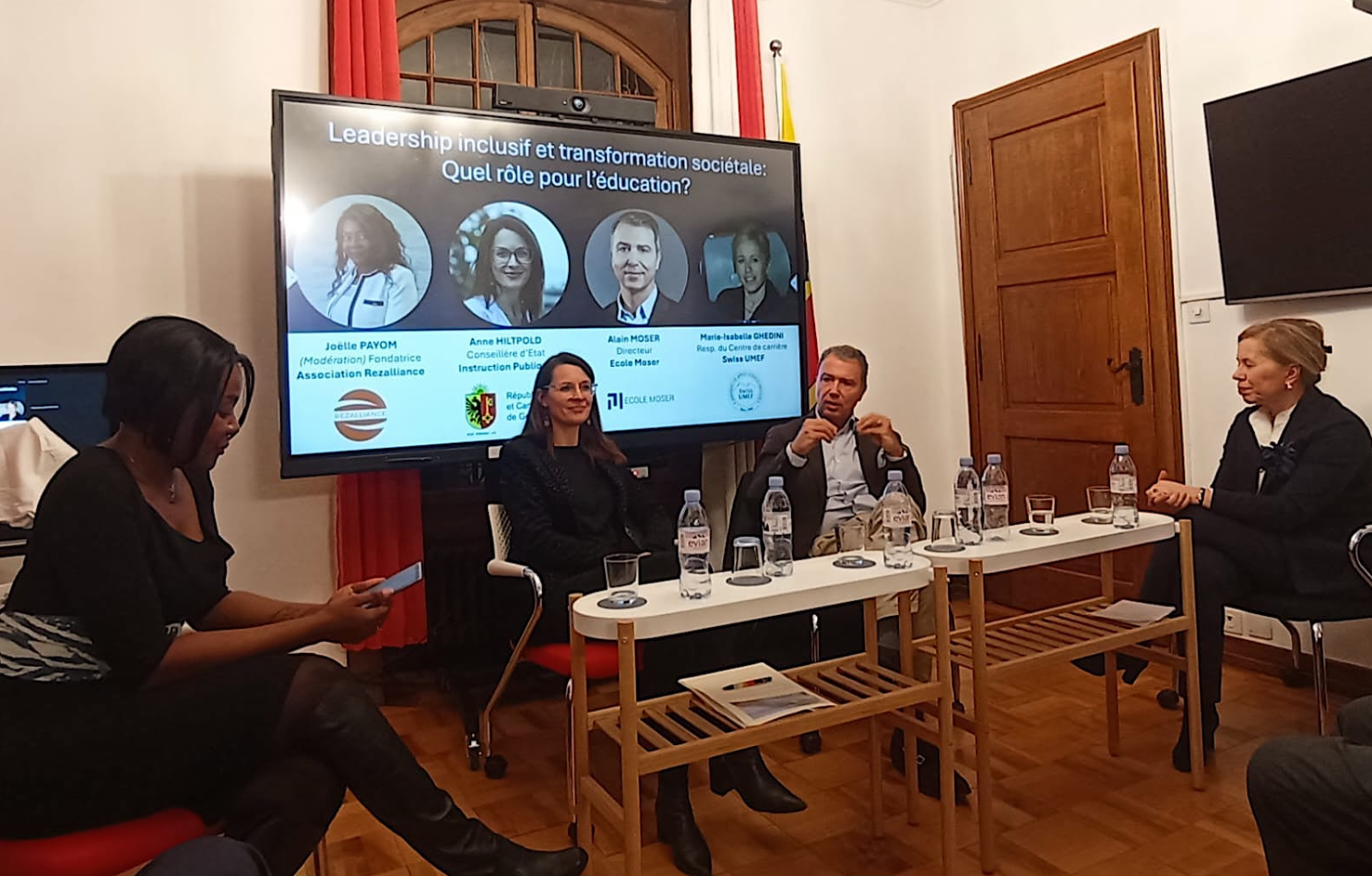
We set out to offer the public something deep and introspective through this roundtable—and thanks to the honest, thoughtful contributions of Anne Hiltpold, Alain Moser, and Marie-Isabelle Ghedini, we succeeded.
Their diverse perspectives reaffirmed our belief that education is a cornerstone of both social and professional inclusion. And they reminded us just how essential it is to continue our efforts to create inclusive environments in all spheres of society.
🌟 This roundtable was also the perfect occasion to unveil the emblem of #24May—an item that will now travel across the globe, accompanying official events in recognition of the International Day Against Workplace Harassment and for Inclusion.
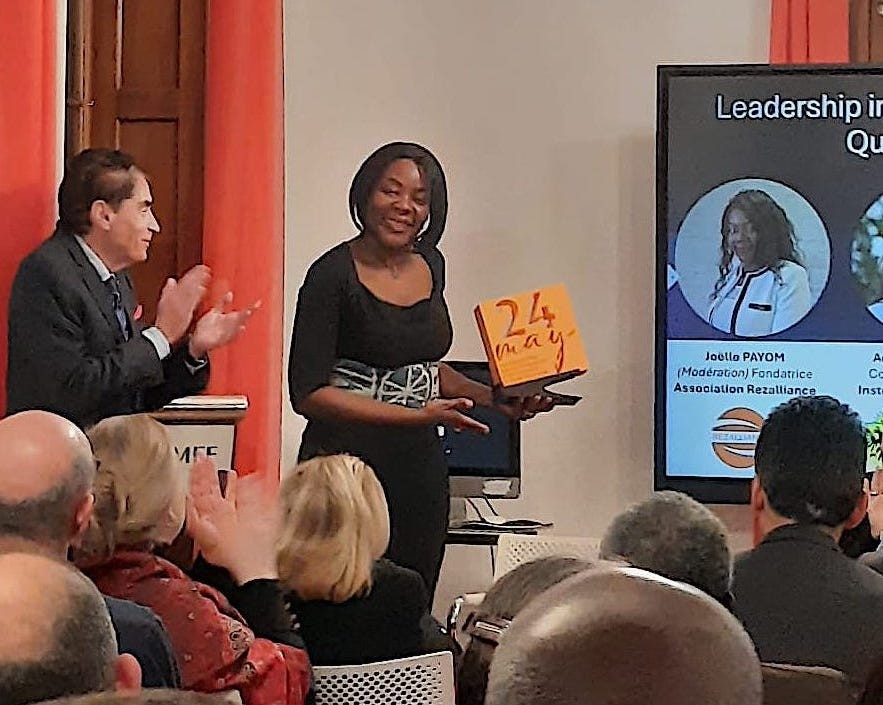
💝 I would like to once again express my heartfelt gratitude to everyone who supported and participated in this important event. I’m especially thinking of Béatrice Bourgeois, for her research and editorial coordination work, Didier Garzotto and the rest of the Swiss UMEF team for their logistical support, and all those who prefer to stay in the background rather than the spotlight… THANK YOU—your commitment fuels the mission of Rezalliance.
On March 4th, we took another step toward a world where inclusion is not just a slogan, but a lived reality for every human being.
Thank you for continuing this journey with us. Your presence and commitment make the transformation we want to see in the world possible.
Together, we can build a society where every voice is heard, every person is valued, and every action contributes to a more inclusive world.
Joëlle Payom, Founder of Rezalliance
Words only matter if followed by action. Let’s act accordingly. ✨
